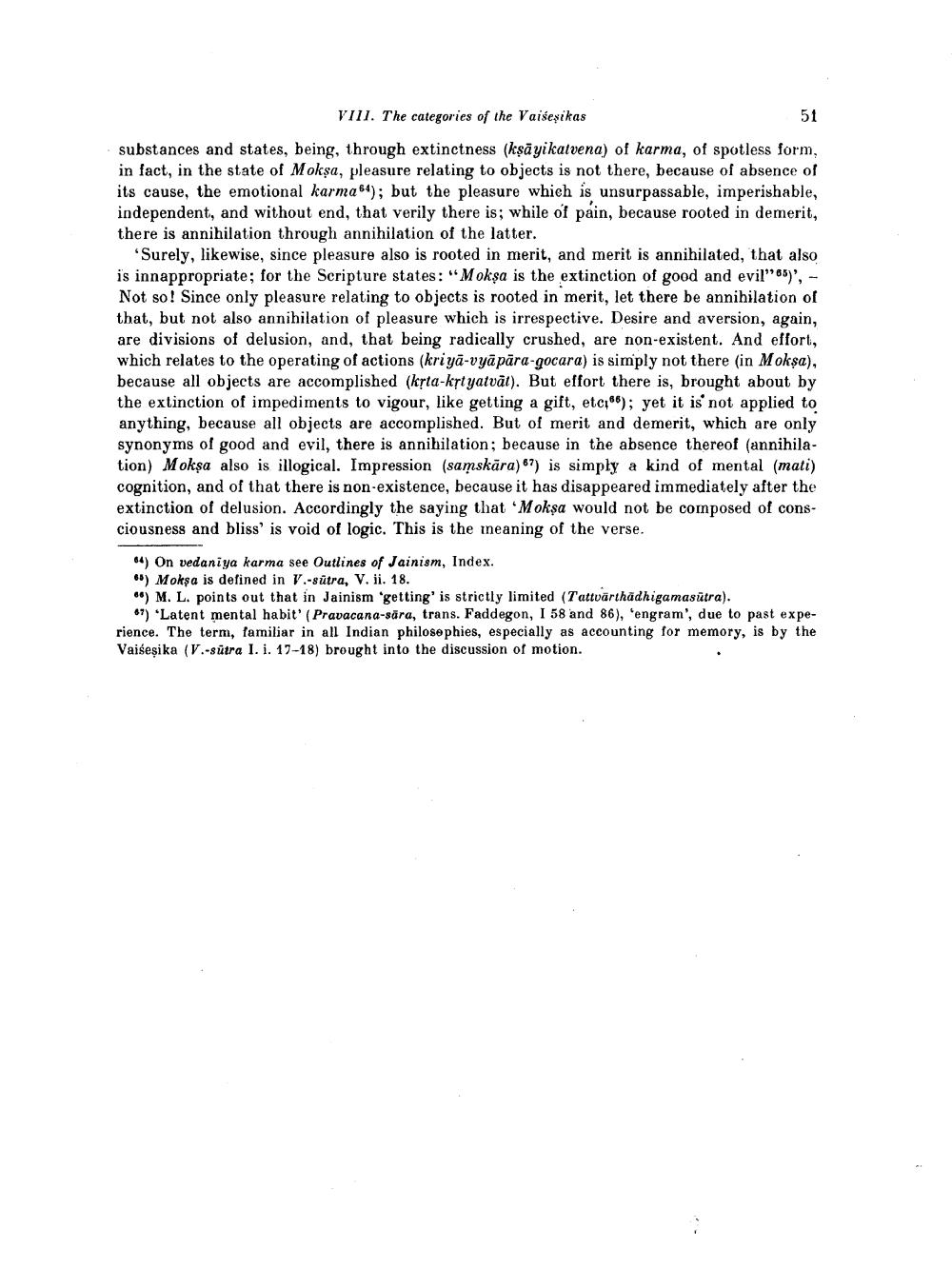________________
VIII. The categories of the Vaišeşikas
substances and states, being, through extinctness (kşāyikatvena) of karma, of spotless form, in fact, in the state of Moksa, pleasure relating to objects is not there, because of absence of its cause, the emotional karma64); but the pleasure which is unsurpassable, imperishable, independent, and without end, that verily there is; while of pain, because rooted in demerit, there is annihilation through annihilation of the latter.
Surely, likewise, since pleasure also is rooted in merit, and merit is annihilated, that also is innappropriate; for the Scripture states: "Mokşa is the extinction of good and evil"65)', - Not so! Since only pleasure relating to objects is rooted in merit, let there be annihilation of that, but not also annihilation of pleasure which is irrespective. Desire and aversion, again, are divisions of delusion, and, that being radically crushed, are non-existent. And effort, which relates to the operating of actions (kri yā-vyā pāra-qocara) is simply not there in Moksa), because all objects are accomplished (ksta-krtyatvāt). But effort there is, brought about by the extinction of impediments to vigour, like getting a gift, etc 86); yet it is not applied to anything, because all objects are accomplished. But of merit and demerit, which are only synonyms of good and evil, there is annihilation; because in the absence thereof (annihilation) Moksa also is illogical. Impression (samskāra) 67) is simply a kind of mental (mati) cognition, and of that there is non-existence, because it has disappeared immediately after the extinction of delusion. Accordingly the saying that Moksa would not be composed of consciousness and bliss' is void of logic. This is the meaning of the verse.
") On vedaniya karma see Outlines of Jainism, Index. 65) Moksa is defined in V.-sutra, V. ii. 18. “) M. L. points out that in Jainism "getting' is strictly limited (Tattvärthadhigamasutra).
7) 'Latent mental habit' (Pravacana-sära, trans. Faddegon, I 58 and 86), 'engram', due to past experience. The term, familiar in all Indian philosophies, especially as accounting for memory, is by the Vaiseșika (V.-sutra I. i. 17-18) brought into the discussion of motion.




